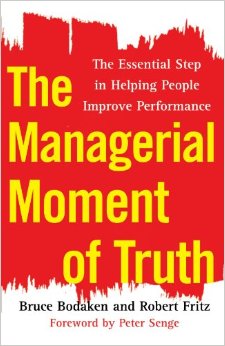What can you do with a degree in philosophy?
In the information age, the oldest academic discipline — philosophy — is not an area of study that most students consider. For those who can’t see outside the box of academia, philosophy can seem impractical.
But there are numerous examples to the contrary. Forbes recently showed that many leaders in the tech industry have backgrounds in philosophy, and a 2014 Huffington Post piece argued that a philosophy degree is the secret to success in the business world.
Bruce Bodaken (‘73), one of the CSU philosophy department’s most notable alums, recently retired as president, chairman and CEO of health insurance nonprofit Blue Shield of California. His long and successful career was groundbreaking, as he advocated for universal health care in California more than eight years before President Obama signed the Affordable Care Act. Bodaken believes it is his background in philosophy that distinguished him from his peers in business and uniquely prepared him to be a leader and innovator.

A passion for philosophy
Bodaken was born and raised in Iowa but chose CSU over universities that were closer to home after his cousin, an alumna, spoke of how much she loved her time here.
“Colorado had an interesting flavor to it because it has mountains and things that don’t exist where I grew up, so it was attractive on that front,” he said.
Bodaken describes his time at CSU as being a “great experience,” especially his involvement in the philosophy department.
Like many students, Bodaken picked a major that aligned with his interests and began taking classes in the core curriculum. After a few semesters of classes in political science, he discovered his true passion by chance when he took an introductory philosophy course. And, as many students do, he quickly changed his major.
“I decided that studying philosophy might be interesting,” he explained.
Strong faculty connections
The College of Liberal Arts is known for its excellent teaching, regularly sweeping the annual Best Teacher awards, and Bodaken names his first philosophy professor as being the spark that ignited his interest in the discipline.
“The faculty were not only good philosophers, but they were also really great teachers,” he said. “And I happened to get one of those wonderful teachers — Dave Crocker — in my first philosophy class. I was excited about the subject matter, and he encouraged me to think about taking more classes, which I did. You can pinpoint people in your career who made a difference, and [Crocker] certainly made a difference in my life.”
If a skilled professor is what drew him in, it was activism and anti-war politics that kept him engaged. Bodaken fondly recalled the special relationship that students had with faculty at that time.
“It was a time of political upheaval, and these guys were all very politically active,” he said of his professors. “I was marching with them in the streets some days and taking their courses other days.”
The skills for success
Bodaken continued studying philosophy after he graduated from CSU, earning a master’s degree in philosophy at the University of Colorado and completing Ph.D. coursework before leaving academia for a career in the health insurance industry. Bodaken credits his background in philosophy with helping him hone his business acumen, as he had little experience in the industry.
 “Philosophy gave me a rigor in thinking, writing and logical reasoning that helped me navigate the business world in my early years,” he said. “Those skills directly and indirectly made a big difference for me.”
“Philosophy gave me a rigor in thinking, writing and logical reasoning that helped me navigate the business world in my early years,” he said. “Those skills directly and indirectly made a big difference for me.”
Philosophy teaches students how to write, think critically, analyze problems thoroughly and express themselves clearly and persuasively. In the business world, this makes them quick learners and excellent problem solvers. Bodaken’s skillset in problem-solving set him apart from peers who took a more traditional path to business.
“I was promoted partly because of the way I approached problems,” he said. “Most people around me had MBAs. I used to joke that anyone can learn how to read a balance sheet, but it’s hard to teach strength of leadership and strength of thinking. Philosophy, because of the rigor of the thinking, prepares you for making tough decisions and thinking through complex situations at a very deep level.”
For Bodaken, this sometimes meant breaking from tradition in favor of pursuing actions more in alignment with his ethical framework. In 2002, he was the first health plan CEO in the U.S. to propose a plan for universal health coverage.
“We knew it was going to be something of a public relations risk, but [universal health coverage] was clearly aligned with my fundamental values about equity and fairness. We didn’t regret it for a moment, because it was pretty clear that something like this ultimately had to happen. And many of the tenets of that plan are now embodied in the Affordable Care Act.”
Getting back to his roots

Now that he’s retired, Bodaken has returned to his roots in academia, teaching part-time in the School of Public Health at the University of California, Berkeley. His courses focus on leadership ethics and health care topics such as universal health coverage — a unique marriage of his studies in philosophy and experience in health insurance. Bodaken sees this interdisciplinary approach as being important to the future of philosophy.
“Now, especially, it is critical to think about how to round out a philosophy degree with other classes that have an applied component,” he said. “For example, public health, or politics, or business, or other areas where you’re applying your understanding of philosophical issues.”
Though philosophy may be more challenging than some areas of study, Bodaken explains that the benefits are equally rewarding.
“While philosophy is certainly initially difficult, it is well worth it in terms of how you understand the world, how you understand yourself, and how you understand the ways others have thought through the very same issues that are important to you,” he said. “It’s intrinsically rewarding, but it can also be extrinsically rewarding and certainly has been for me.”
